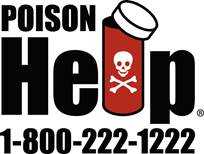Help and Resources

What is your role in preventing opioid-related overdoses?
Do you know what you can do to help?
- Learn more about opioids so you can help people who are most at risk for opioid use disorder and overdose in your community.
- Provide tools and information for healthcare professionals working on overdose prevention and treatment.
- Help those struggling with opioid use disorder find the right care and treatment.
- Increase awareness and share best practices with providers and patients in your community.
As a patient, a healthcare provider, or a member of a community you can ensure that the best information is being shared and understood to prevent overdose deaths.
- Tools for Patients
- Find Substance Abuse Treatment
- Medication-Assisted Treatment (MAT)
- Support for Patients, Family & Friends
Tools for Patients
- Pregnancy and Opioid Pain Medications[PDF – 1 MB]
Women who take prescription opioids should be aware of the possible risks during pregnancy. - Guidelines Patient Poster: Manage Your Pain, Minimize Your Risk[PDF – 720 KB]
- JAMA Patient Page: Opioids for Chronic Pain
Medicine/Poison Help
If you have questions about any medicines, call the U.S. Department of Health and Human Services Poison Help Hotline at 1-800-222-1222.
Find Substance Abuse Treatment
If you or someone close to you needs help for a substance use disorder, talk to your doctor or call SAMHSA’s National Helpline at 1-800-662-HELP or go to SAMHSA’s Behavioral Health Treatment Services Locator.
Additional Resources
Medication-Assisted Treatment (MAT)
- Medication-Assisted Treatment (MAT) combines behavioral therapy and medications to treat substance use disorders.
- Handbook: Decisions in Recovery: Treatment for Opioid Use Disorder
- Page last reviewed: August 29, 2017
- Page last updated: August 29, 2017
- Content source:
- Centers for Disease Control and Prevention,
- National Center for Injury Prevention and Control,
- Division of Unintentional Injury Prevention


 ShareCompartir
ShareCompartir
